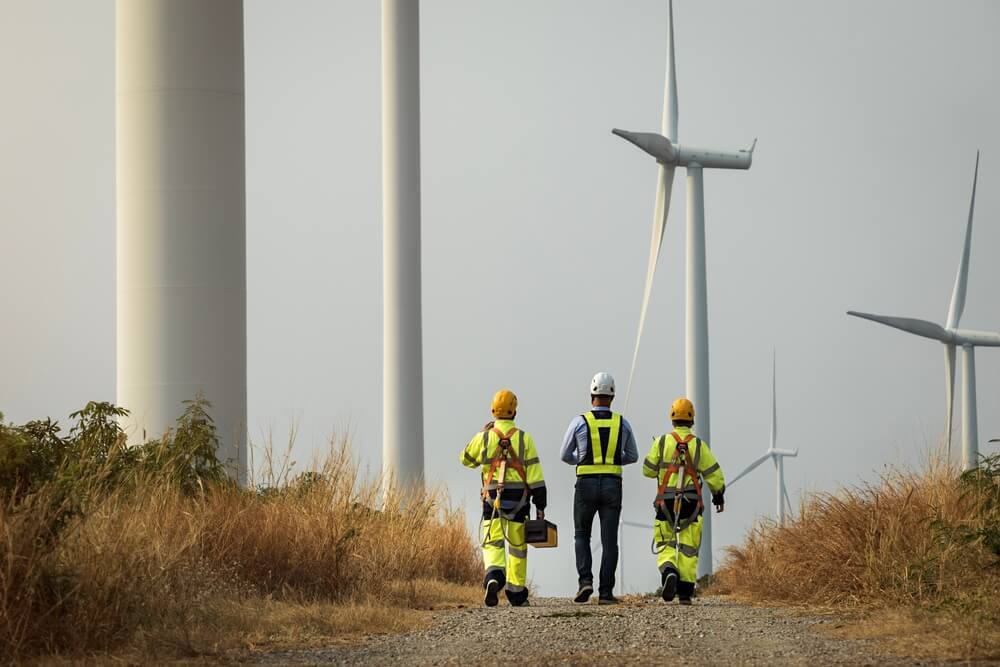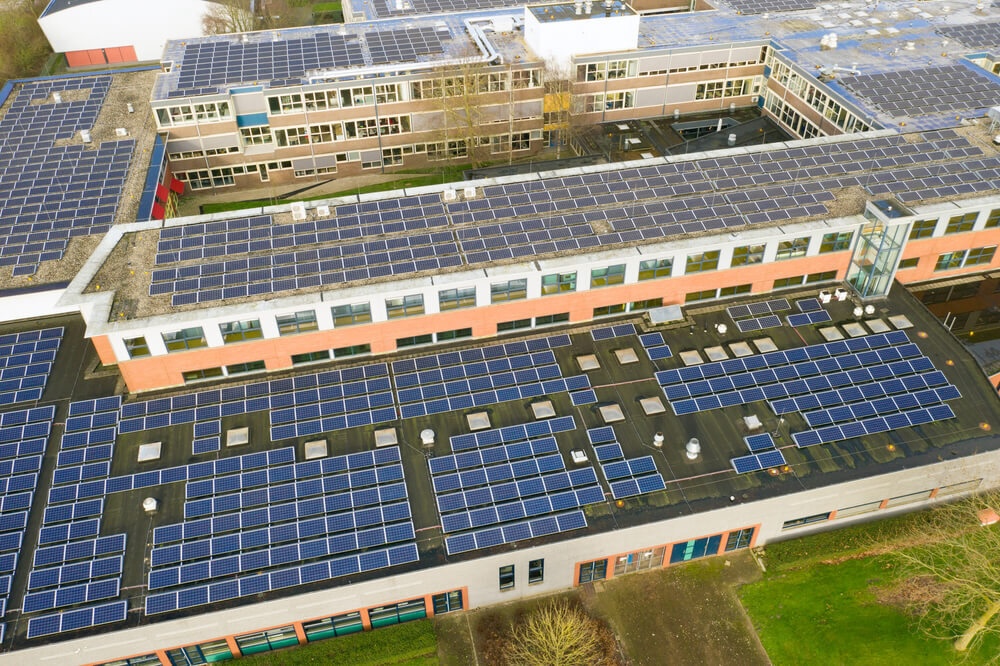Greetings, Agents of Impact!
Featured: Institutional Impact
ESG and its discontents: A defense of HSBC banker Stuart Kirk and a critique of ESG orthodoxy. Stuart Kirk has had enough. Last week, Kirk resigned as HSBC’s head of sustainability, saying his position had become unsustainable. The news wasn’t exactly a surprise. In May, HSBC had suspended Kirk after a video of his speech at the Financial Times’ Moral Money conference went viral. In his keynote address, “Why investors need not worry about climate risk,” Kirk suggested central banks should not be in the business of regulating climate change. He called out Mark Carney as an egotist and argued that we are all getting a bit too glum about the climate crisis. “There’s always some nut job telling me about the end of the world,” Kirk said. In her latest column, ImpactAlpha contributing editor Imogen Rose-Smith says HSBC was wrong to suspend Kirk and regrets his departure. “ESG is not a religious doctrine, or some kind of precious garden that needs to be protected,” Rose-Smith writes. “I welcomed the discussion, and others should, too.”
No discussion of ESG – no discussion on almost any topic these days, it seems – is complete without a mention of Elon Musk. The Tesla CEO has called ESG “a scam” that has been “weaponized by phony social justice warriors.” But if you’re tired of chewing over whether Tesla should have been dropped from S&P Global’s sustainability index, Rose-Smith suggests you consider the case of Glencore, one of the largest exporters of thermal coal. In May, the Anglo-Swiss commodities company agreed to pay at least $1.2 billion in fines relating to business dealings in Brazil and Africa. Other settlements and investigations are in the works. So, not ESG? “Not so fast,” Rose-Smith says. The settlement “removes a distraction” from Glencore’s increased focus on mining for cobalt, copper and nickel that are vital to electric-vehicle batteries and electricity transmission, as The Wall Street Journal reported after the settlement. ESG investing, and indeed all investing, is hard, Rose-Smith writes. “Many of the banks, and asset managers, that preach the gospel of ESG investing so eloquently are still financing the fossil fuel economy, helping clients to avoid taxes, and ripping poor people off,” she says. “Maybe they could start thinking about doing a little bit less of that before they start acting like the ESG police.”
- Keep reading, “ESG and its discontents: A defense of HSBC banker Stuart Kirk and a critique of ESG orthodoxy,” by Imogen Rose-Smith or ImpactAlpha. Catch up on all of Imogen’s Institutional Impact columns.
- ICYMI. Read Imogen’s earlier barn-burner, “The politics and power of asset management lead straight to the U.S. Supreme Court.”
Dealflow: Climate Tech
Persistent raises $10 million to scale its climate venture building model. Persistent calls itself “Africa’s climate venture builder.” Founded a decade ago out of the assets of impact pioneer E+Co, it provides funding, personnel and operational support to startups working to reduce carbon emissions and create jobs. The firm has backed 22 solar, e-mobility and enabling-tech startups. Last week, it invested an undisclosed amount in Ghana-based Solar Taxi, which makes two and four-wheel electric vehicles for transportation and delivery services.
- Catalytic capital. Funding for Persistent’s Series C round was provided by Japan’s Kyuden International Corp., as well as private investors in the U.S. and Asia. U.k.-backed FSDAi, the investment arm of the FSD Africa, provided “patient, catalytic capital.” The funding will help Persistent “accelerate the investment needed by African entrepreneurs in the nascent and fast-growing climate sectors,” said FSDAi’s Anne Marie Chidzero.
- Share this.
Circ secures $30 million to recycle textile waste. Only about 12% of the materials used to make clothing ends up being recycled. A raft of textile-recycling startups, including Evrnu and Ambercycle, are working to bring the fashion industry into the circular economy. The latest: Danville, Va.-based Circ, which returns old clothes to the raw materials from which they were made, and works with clothing brands, retailers and manufacturers to reuse the materials. The company is aiming to recycle 10 billion garments by 2030. Textile production alone is responsible for 1.2 billion metric tons of greenhouse gas emissions each year.
- Circular economy. Breakthrough Energy Ventures led Circ’s Series B round. Circ’s ability to recycle blended textiles is “a significant breakthrough that can help us to achieve our global carbon goals by reducing the carbon intensity of textile raw materials,” said BEV’s Carmichael Roberts. Participating partners include 8090 Partners, Alante Capital, Circulate Capital, Envisioning Partners and several large fashion brands.
- Share.
Dealflow overflow. Other investment news crossing our desks:
- Solar Panda secured $8 million from Oikocredit and the Electrification Finance Initiative for pay-as-you-go solar home installations in rural Kenya.
- The Cool Down, a climate-focused digital media and commerce startup, raised $5.7 million from Upfront Ventures and Revolution’s Rise of the Rest Seed Fund. Pique Action, which plans “positive” short-form videos to drive climate action, scored $1 million of pre-seed funding.
- FACES, a microfinance institution in Ecuador, will use proceeds from a $5 million green bond arranged by Symbiotics to finance small-scale farmers using climate-smart agriculture.
- Mexican health tech startup Prosperia snagged $2 million in seed funding to help prevent blindness from diabetes.
Signals: Creative Economy
Impact investments are beginning to show up in the endowments of U.S. art museums. Changes to museum investment policy favoring sustainability and diversity are recent. Allocations to impact remain small. But slowly and steadily, the sleepy boards and investment committees of U.S. art and culture museums are investing their endowments to advance their missions. “Museums will help chart a path to a more equitable future not only through the artists they present and the audiences they engage, but by what they invest in and who they hire to manage those investments,” says Ford Foundation’s Darren Walker, a trustee of the National Gallery of Art in Washington, D.C. More than one-third of museums say they have moved from a conversation about integrating impact into their investments to action, according to a survey of 61 museums from Upstart Co-Lab, the Association of Art Museum Directors, and the Black Trustee Alliance for Art Museums. Roughly 35% say a portion of their endowment is managed by diverse managers and about 31% say a portion of their endowment portfolio is currently invested in impact investing strategies. Among the signs of progress:
- Diverse managers. A gender- and racially-diverse team led by director Kaywin Feldman has driven a diversification of portfolio managers at the National Gallery of Art. Diverse managers now manage 40% of the museum’s $875 million endowment.
- Local investments. A commitment to the surrounding community has led the Walters Art Museum in Baltimore to allocate $5 million of its $170 million endowment to local investments, including a loan to ReBUILD Metro and an investment in a VC firm backing businesses in Baltimore (for context, see “Cultural institutions start to put their assets to work for mission”). A housing project for artists and museum workers has attracted the interest of new individual donors at The Contemporary Arts Museum Houston.
- Share this post.
Agents of Impact: Follow the Talent
Benjamin Attia, previously with Wood Mackenzie, joins BlackRock Sustainable Investing as research lead for energy, climate and sustainability… BlackRock seeks a sustainable investing research and strategy associate in New York or Washington state… Manulife Investment Management is looking for an associate director to lead forest carbon projects for its timber and agriculture group in Springfield, Mass.
Nia Impact Capital is hiring an equity analyst and a growth and development professional… The McKnight Foundation seeks multiple program officers for its Midwest climate and energy program… KKR is hiring an impact/ESG senior manager in New York… The U.S. Department of Energy is accepting applications from states, tribal nations and territories for a $2.3 billion grant program to support grid resilience.
Thank you for your impact!
– July 13, 2022











